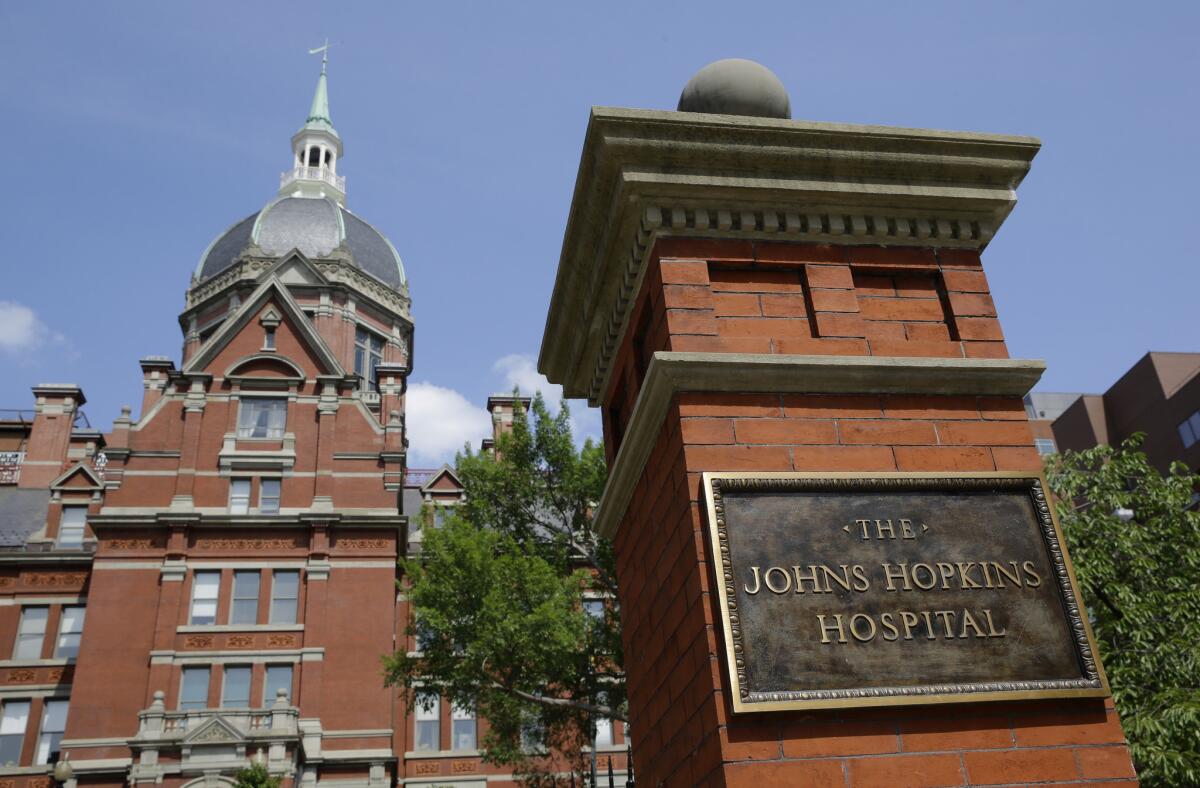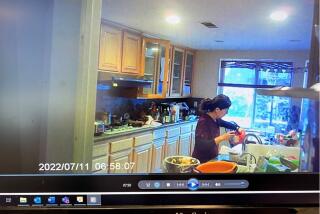Johns Hopkins gynecologist with camera: Victims to get $190 million

- Share via
Dr. Nikita Levy’s career as a gynecologist at one of the most trusted hospital systems in the world lasted for 25 years. It took only one day for that career to come to an end.
On Feb. 4, 2013, one of Levy’s colleagues told supervisors at Johns Hopkins in Baltimore that she suspected the thing Levy was wearing around his neck during gynecological exams — it looked like a writing pen — was a spy camera.
Which it was. In fact, officials said, Levy had several such cameras in his office and on his person when hospital security paid him a visit a day later. Officials said they discovered Levy had used the devices to take photos and videos during his appointments, turning thousands of patients over 25 years into thousands of potential victims.
Levy was escorted out of the hospital, and less than two weeks later, facing a criminal investigation by Baltimore police, he killed himself.
A class-action lawsuit against the hospital soon followed. On Monday, attorneys for Johns Hopkins and for Levy’s patients announced that they had agreed on a proposal for a $190-million settlement to be paid to the victims by the hospital system’s insurers.
“When learning of Dr. Levy’s behavior, our clients were extremely distraught,” the plaintiffs’ attorneys said in a statement Monday. “They felt a great breach of faith and trust. They felt betrayed. Now, with this proposed settlement, we can begin the process of healing our community.”
It is believed that Levy acted alone, and there has been no evidence that he shared any of the more than 1,200 video clips and images officials discovered on 10 hard drives at his Towson-area home, attorneys said.
Attorneys for Levy’s patients said it would have been impossible to tell exactly who had been victimized, because the images often showed only genitals.
“What is the normal expected reaction of a patient of an OB-GYN who finds out that her doctor, who she intimately trusts … secretly videotaped and took photographs of his patients?” Jonathan Schochor, an attorney for the patients, told reporters at a Monday news conference. “Is it appropriate for that patient to believe she was included? It is.”
As a result, the class-action lawsuit gathered more than 9,000 plaintiffs and alleged that Johns Hopkins had failed to protect Levy’s patients by not noticing that he was recording them. Attorneys said there were instances in which Levy had been conducting exams without the routine presence of a chaperon, and that he had conducted an excessive number of exams that sometimes committed “boundary violations” with his patients.
“We have no information as to what motivated Dr. Levy,” Schochor said. An attorney for Johns Hopkins, Donald DeVries, disputed the claims of the plaintiffs’ attorneys that Johns Hopkins should have discovered Levy’s actions sooner — or that there were not chaperons present during exams — telling reporters that the recordings were a “colossal breach of trust.” DeVries added, “It’s one of those situations where no matter what rules and regulations you put in place … there’s not a thing you can do to prevent that.”
“We assure you that one individual does not define Johns Hopkins,” hospital officials said in a statement. “Johns Hopkins is defined by the tens of thousands of employees who come to work determined to provide world-class care for our patients and their families.”
The settlement proposal is subject to the approval of a judge, with the next hearing in the case scheduled for Sept. 19.
One former patient, Myra James, 67, told the Associated Press that she had been going to Levy for annual exams for 20 years. She hasn’t been to a gynecologist since the allegations were made public in early 2013.
“I can’t bring myself to go back,” James said. “You’re lying there, exposed. It’s violating and it’s horrible, and my trust is gone. Period.”
Follow @MattDPearce for national news.
More to Read
Sign up for Essential California
The most important California stories and recommendations in your inbox every morning.
You may occasionally receive promotional content from the Los Angeles Times.











